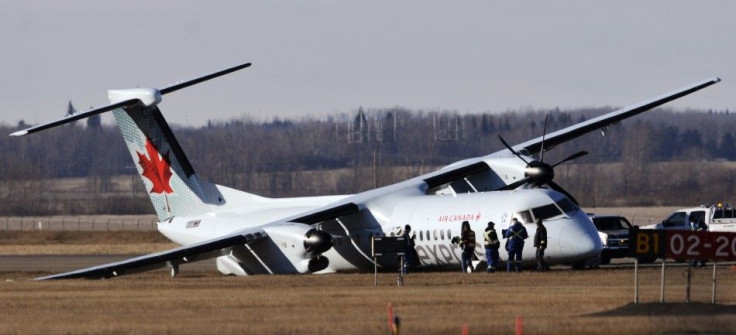Air Canada bans shipment of hunting trophies, follows other airlines after outrage over 'Cecil the lion’ killing

Respecting the public sentiment that erupted after the killing of Cecil the lion in Zimbabwe by an American hunter, Air Canada announced that it will no longer transport big-game hunting trophies. The Canadian airline now joins the ranks of Delta Airlines, Air France, American Airlines, Austrian Airlines, British Airways, Brussels Airlines, Comair, Emirates Airlines, Ethiopian Airways, Etihad, IAG Cargo, Iberia Airlines, KLM, Lufthansa, Qantas, Qatar Airways Singapore Airlines, United Airlines, Virgin Atlantic, Virgin America, and WestJet, which all stopped the transport of hunting trophies.
Peter Fitzpatrick, the airline’s spokesman noted that Air Canada had few such shipments in the past because the company does not operate flights to South Africa, where big-game hunting is a flourishing industry. He said Air Canada is in full compliance with existing regulations on transporting endangered wildlife.
Outrage
The lion’s killing in early July had brought trophy hunting into focus and sparked social media outcry. The Cecil the lion episode moved three U.S. airlines immediately into action, all announced that they will no longer ship lion, leopard, elephant, rhino or buffalo killed by trophy hunters. In May, Atlanta-based Delta Airlines said that it would continue such shipments as long as they were legal. American Airlines and United Airlines were the other two that announced a ban. Delta also banned hunters' trophies in flights.
The lion named Cecil was killed by an American dentist in an allegedly illegal hunt. The dentist, Walter James Palmer, lives in Minnesota. Zimbabwe has demanded his extradition for killing the 13-year-old lion, which was fitted with a GPS collar under a study by the Oxford University.
Virgin Atlantic owner Richard Branson, in his blog condemned the trophy hunters and regretted their fallacy of killing animals to preserve them. He wrote, “Those defending these unsustainable hunting practices should take a long-term view. We know that elephants and rhinos and surely lions, too – if left alive – have a lifetime economic value that can go into the millions.”
Jail term
Meanwhile, there are contradicting reports on the quantum of punishment to the American dentist who killed Cecil the lion. The guide who assisted the American dentist may face a maximum 260 pounds fine (AU$544) or a year in prison if convicted. The lawyer for the guide, Theo Bronkhorst, said he has evidence that the rare black-maned lion was lawfully shot. The lawyer also said there is no charge under Zimbabwean law that could bring Palmer to trial if he was extradited to Africa. According to the lawyer, Givemore Mvhiringi, under the existing law, the American dentist can only get a fine of $400 (AU$540) or one year in prison.
For feedback/comments, contact the writer at feedback@ibtimes.com.au or let us know what you think below.





















